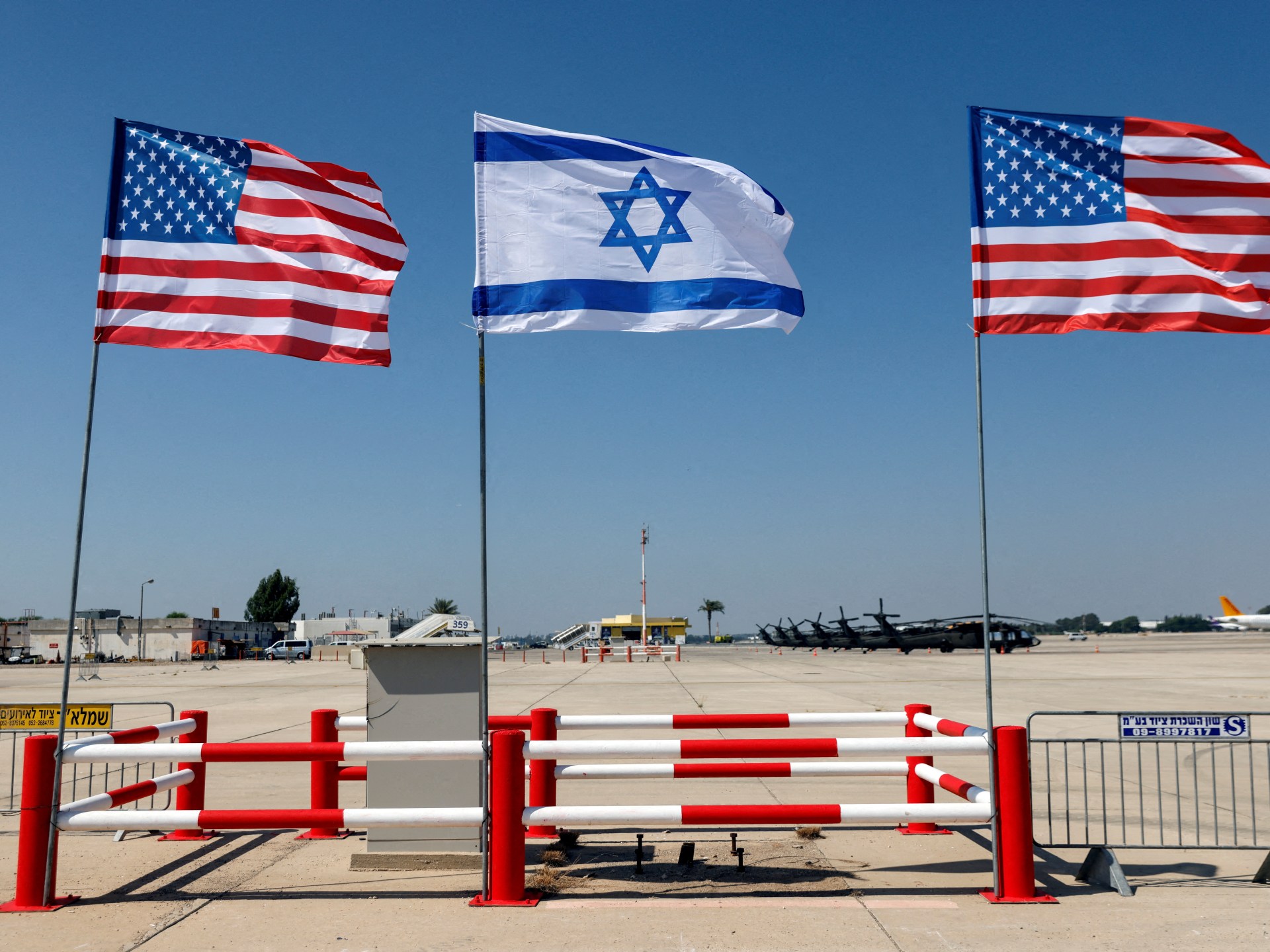At 81, my father still recounts stories about our village, Nuris, and his place of birth, Bisan (Beit She’an), with a heavy heart.
As children, my siblings and I would often stand with our father on the western border of Jordan, where our family has lived as refugees for more than 75 years, and look over to our homeland, Palestine. He would point out to us, with tears in his eyes, the location where his family home in Bisan once stood.
Our village, Nuris, was depopulated in 1948. Now, an Israeli settlement called Nurit stands on its ruins. Nuris is just 20 miles (32km) away from that border spot we used to visit. However, the distance always felt much greater. We always felt as if there were oceans and continents between us. Sure, we knew the village was nearby, but we had no way of getting there.
This is because Israel does not recognise the right of the Palestinians to return to their homeland. Even visiting for short periods of time is complicated and out of reach for many of us. Consequently, for my father, returning to Nuris remains an unfulfilled dream to this day.
Last month, I finally managed to visit Nuris. I was the first person in our family to be able to do so for many decades. I sent my father photographs and videos of his ancestral village and old neighbourhood. The images made him very emotional, and talking about them helped us reconnect to this beautiful land our family had called home for generations. My journey to Palestine was not a mere touristist visit; it was an emotional odyssey, a pilgrimage back to the land my family was forced to leave in 1948.
As an American citizen, visiting my homeland should theoretically be a straightforward process. After all, US nationals are not required to obtain a visa to enter Israel. Yet it took me many decades to make it to Nuris, because of Israeli policies aimed at preventing Palestinian Americans, and especially activists like myself, from entering the country.
For many years, my advocacy for Palestine had made me persona non grata in Israel, meaning I had no way of entering the country. Many of my Palestinian American friends and colleagues have also suffered the same fate, and some even received permanent bans.
I was finally allowed entry into my indigenous homeland last month, but this was not due to Israel seeing the error of its ways, and deciding to end its discriminatory policies against Palestinian Americans. It was nothing but a temporary stunt to smooth Israel’s path into the US Visa Waiver Program (VWP), which gives citizens of a select few countries the right to travel to the US, and stay there for 90 days, without a visa.
The fundamental requirement for a country to be admitted into the VWP is reciprocity – a country’s citizens can only get visa-free travel to the US, if their country gives that same right to all American citizens. For decades, Israeli authorities have routinely and arbitrarily denied American citizens of Palestinian descent, and especially those of us residing in the occupied West Bank and Gaza, entry into the country. This contradicts with the VWP’s principle of reciprocity and disqualifies Israel from being admitted into this highly coveted programme.
In the past few months, the Israeli authorities started to allow Palestinian Americans like myself into the country in an obvious effort to convince their critics that once admitted into the VWP, Israel would not discriminate against Americans of any ethnicity.
For now, they seem to have been successful. In a statement on Wednesday, the US Department of Homeland Security said Israel has been designated for the VWP and that Israeli nationals will be able to travel to the US without a visa by November 30. It added that Israel “made updates to its entry policies to meet the VWP requirement to extend reciprocal privileges to all US citizens without regard to national origin, religion, or ethnicity”.
There is, of course, no reason to believe Israel would hold its promise and allow Palestinian Americans into the country without any added hurdles and obstacles. As the date for Israel’s entry into the programme nears, there are still countless Palestinian Americans who are being denied entry into their ancestral lands without a meaningful explanation or legal standing.
The only issue with Israel’s entry into the VWP programme is not a lack of full reciprocity either. How can a country that systemically abuses human rights – including the rights of American citizens – be admitted into a programme that is designed for American allies who share a commitment to human rights, democracy, and the rule of law?
Even if Israel was to meet all the technical requirements of entering the programme – which it currently does not – it stands in direct contradiction to the stated human rights policies of the United States. Israel’s admission into the VWP would signal to the world that the US is supporting its highly discriminatory border policies and myriad human rights abuses. Furthermore, it would send a clear message to American citizens of Palestinian origin that their lives, safety, and history mean nothing to those ruling their country.
Thanks to Israel’s ambition to be admitted into VWP, I was finally able to visit my homeland. But not all Palestinians, and not even all Palestinian Americans are as fortunate. Justice and equality are still far from reach for many Palestinians, both in the diaspora and in our homeland. Until Israel adheres to the principles of human rights and equality, including for Palestinian Americans, it should have no place in the Visa Waiver Program.
The views expressed in this article are the author’s own and do not necessarily reflect Al Jazeera’s editorial stance.
